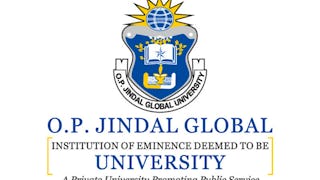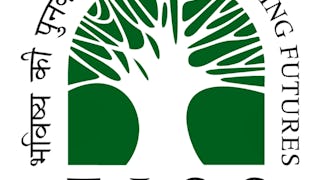This course explores democracy as a form of governance and its impact on development and public policy. Learners will examine the significance of democratic institutions in shaping development agendas and outcomes. Through comparative analysis, the course investigates how democracies and non-democracies differ in their approach to public policy, resource allocation, and citizen engagement. Key questions addressed include whether democracy promotes development, how policy outcomes vary across regimes, and whether democracies should be evaluated based on results. By the end of the course, learners will gain a nuanced understanding of the complex relationship between democratic governance and development effectiveness in diverse contexts.


您将学到什么
Dive into democracy, governance, and development, focusing on representative democracy. Analyze its function, strengths, and limitations.
您将获得的技能
要了解的详细信息

添加到您的领英档案
June 2025
23 项作业
了解顶级公司的员工如何掌握热门技能

该课程共有7个模块
In this module, you will examine democracy as one form of governance. It discusses the significance of democracy for development policies. It explores public policy outcomes in democracies vis-à-vis nondemocratic systems of governance. You will find answers to questions, such as: Is democracy good for development? Does democracy have different public policy outcomes than nondemocracy? Should we judge democracy as an institution with results? If yes, what are those outcomes?
涵盖的内容
8个视频2篇阅读材料3个作业
This module introduces you to different kinds of governance and governance reforms. It discusses how to assess the quality of governance. You will learn about different theoretical conceptions of governance and theoretical approaches to study governance, including rational choice and collective choice, new institutionalism, policy networks, and policy instruments.
涵盖的内容
6个视频2篇阅读材料4个作业
This module focuses on state capacity and the state’s role in economic development. It examines various state forms, including the developmental state, predatory, regulatory, and corporatist state. Finally, you will examine the relationship between forms of state and types of democracy to understand democracy as a political practice for enhancing development.
涵盖的内容
7个视频2篇阅读材料4个作业
In this module, you will learn about the importance of law for public policy following the discussion on state and governance. It begins with explaining why policies must conform to constitutional provisions and need the backing of law for enforcement. Further, it explains the rationale for separating powers between the executive, the legislature, and the judiciary. Finally, it elaborates on the centrality of the Rule of Law in constitutional democracies.
涵盖的内容
6个视频2篇阅读材料3个作业
This module discusses the liberal utilitarian idea of justice. You will analyze alternative nonutilitarian ideas of justice proposed by John Rawls and Michael Sandel, followed by Amartya Sen’s attempt to revive a utilitarian conception of justice. It further discusses the legal systems in constitutional democracies based on justice. Finally, it examines how judicial review empowers the superior courts to interpret laws to do complete justice.
涵盖的内容
6个视频1篇阅读材料3个作业
In this module, you will learn about the issues and problems that the state takes up and addresses through policy, the role that law plays in enforcing policies, and how law serves as an instrument of political power. The module explains the policy cycle by first identifying a problem or issue and then evaluating the policy chosen to address it, leading to policy modification. You will also examine how power plays a role in bringing some items into the policy agenda, keeping other things out, and persuading people to think about adversity as a virtue.
涵盖的内容
6个视频2篇阅读材料3个作业
This module deals with the global impacts on national and local governance. You will learn how norms and provisions in international treaties shape national policies and laws. You will analyze why it is no longer possible for sovereign states to make policies independently of requirements of international institutions such as the World Bank, International Monetary Fund, the World Trade Organization and commitments given to the United Nations to realize the Sustainable Development Goals. You will also learn why national policies must focus on the imperatives of globalization.
涵盖的内容
5个视频3篇阅读材料3个作业
攻读学位
课程 是 O.P. Jindal Global University提供的以下学位课程的一部分。如果您被录取并注册,您已完成的课程可计入您的学位学习,您的学习进度也可随之转移。
位教师

从 Governance and Society 浏览更多内容
 状态:预览
状态:预览O.P. Jindal Global University
 状态:预览
状态:预览O.P. Jindal Global University
 状态:预览
状态:预览Tata Institute of Social Sciences
 状态:预览
状态:预览Universiteit Leiden
人们为什么选择 Coursera 来帮助自己实现职业发展




常见问题
To access the course materials, assignments and to earn a Certificate, you will need to purchase the Certificate experience when you enroll in a course. You can try a Free Trial instead, or apply for Financial Aid. The course may offer 'Full Course, No Certificate' instead. This option lets you see all course materials, submit required assessments, and get a final grade. This also means that you will not be able to purchase a Certificate experience.
When you purchase a Certificate you get access to all course materials, including graded assignments. Upon completing the course, your electronic Certificate will be added to your Accomplishments page - from there, you can print your Certificate or add it to your LinkedIn profile.
Yes. In select learning programs, you can apply for financial aid or a scholarship if you can’t afford the enrollment fee. If fin aid or scholarship is available for your learning program selection, you’ll find a link to apply on the description page.
更多问题
提供助学金,



